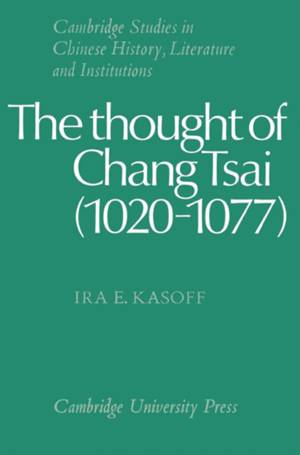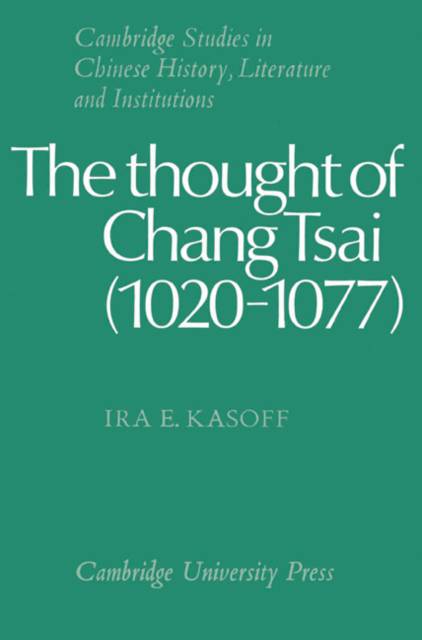
Je cadeautjes zeker op tijd in huis hebben voor de feestdagen? Kom langs in onze winkels en vind het perfecte geschenk!
- Afhalen na 1 uur in een winkel met voorraad
- Gratis thuislevering in België vanaf € 30
- Ruim aanbod met 7 miljoen producten
Je cadeautjes zeker op tijd in huis hebben voor de feestdagen? Kom langs in onze winkels en vind het perfecte geschenk!
- Afhalen na 1 uur in een winkel met voorraad
- Gratis thuislevering in België vanaf € 30
- Ruim aanbod met 7 miljoen producten
Zoeken
Omschrijving
Chang Tsai is one of the three major Chinese philosophers who, in the eleventh century, revitalised Confucian thought after centuries of stagnation and formed the foundation for the neo-Confucian thinking that was predominant till the nineteenth century. The book analyses in depth Chang's views of man, his nature and endowments, the cosmos, heaven and earth, the problems of learning and self cultivation, the ideal of the sage - and how that ideal might be attained. It looks at the intellectual climate of the eleventh century, the assumptions Chinese intellectuals shared, and the problems which concerned them. It describes the triumph of Chang's rivals within the neo-Confucian movement and the subsequent emergence of neo-Confucianism to state orthodoxy in the thirteenth century.
Specificaties
Betrokkenen
- Auteur(s):
- Uitgeverij:
Inhoud
- Aantal bladzijden:
- 224
- Taal:
- Engels
- Reeks:
Eigenschappen
- Productcode (EAN):
- 9780521529471
- Verschijningsdatum:
- 25/07/2002
- Uitvoering:
- Paperback
- Formaat:
- Trade paperback (VS)
- Afmetingen:
- 152 mm x 229 mm
- Gewicht:
- 335 g

Alleen bij Standaard Boekhandel
+ 158 punten op je klantenkaart van Standaard Boekhandel
Beoordelingen
We publiceren alleen reviews die voldoen aan de voorwaarden voor reviews. Bekijk onze voorwaarden voor reviews.









